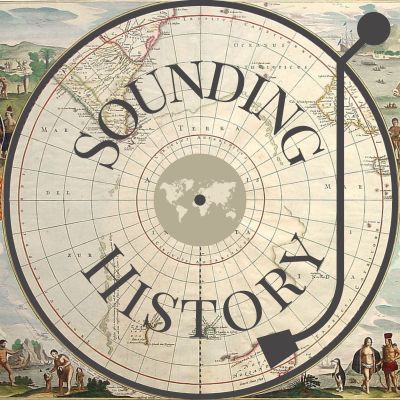Sounding History is a podcast about the global history of music with an unexpected twist. Your hosts, music historians Tom Irvine and Chris Smith, explore sonic impacts of the extraction of resources from the Earth’s environment. Instead of narrating music history as a story about performers, composers, and works, we explore how extraction economy (and the historical processes that came with it, such as settler colonialism, enslavement, and environmental destruction) made the world of sound we live in today. In each episode we introduce two "postcards": sonic micro-histories that illustrate how music can be understood through stories about labor (how we work), energy (how we power their lives), and data (how we consume and transfer information). We use this categories to explore new layers of narrative about music on a global scale. Our goal is a music history for a new era: the Anthropocene, the age of human-generated climate change. We work as researchers and university teachers in the US and Britain. But between us we have long experience outside of the ivory tower, as musicians in styles from folk to early music, as radio hosts, and public speakers...
https://soundinghistorypodcast.com
Gesamtlänge aller Episoden: 5 hours 11 minutes
- 1
- 1
episode 1: Welcome to Sounding History!
Tom and Chris in the Rose Garden, or: how two music historians, with a shared 1990s history in radio but very different academic journeys since, found their way to the cafe of a British heritage site, brainstorming a global history of empires, culture, labor, energy, and data – and then a podcast to go with it.
episode 2: Caribbean Dance, London Symphonies & The Triangular Trade
What does music history have to do with the concept of the Anthropocene, the period of geologic time marked by human impact on the Earth's climate? We begin with the intersections of music and economics, “troubling” our view of 18th century European musical life and its dependence–in part–upon profits from the slave trade...
episode 3: New Soundworlds on Canals & Computers
Canals are built waterways dug into the ground which historically have carried water, people, energy, goods–and information. By analogy computers, networks of digital connection linked via the World Wide Web, carry information the same way. The travel and collision of disparate sounds on the early canals of the young United States shaped its music history. We can think the same way about the earliest history of music on computers.
episode 4: Sounding Stone and Cetacean Energy
This week we visit places “on the edge,” where different musics meet. The first is on the Silk Road, the land route from China to Europe through Central Asia. In the early seventeenth century CE, in Xi’an in Western China, Chinese officials found a stone inscribed in the Chinese and Syriac languages (the Nestorian Stele) that dated back to the Tang Dynasty a thousand years before...
episode 5: Soundtracks of Imperial Power in Europe and Africa
Does music stand apart from the “real world”? We don’t think so. Take, for example, the operas of Jean Baptiste Lully for the court of Louis XIV. More than works of art, these were spectacles of pure politics. They shared the quality with the dramatic musical genres of many empires near and far, including that of Mansa Muso in Sub-Saharan Africa.
episode 6: Sound Sculpting in East Asia & the American South
Sound travels. That’s a truism, but as you will hear in our conversation today, the practice of following sound, sound technologies, and musical styles around the world can really change the way we perceive words that we think mean the same thing everywhere: seemingly-simple words like “jazz” and “blues.”
episode 7: Soundscapes of War and Worship: Mozart and the Call to Prayer
It’s hard to map a sound. Soundwaves don’t care about borders drawn on maps, even if these involve high fences, unless they are being jammed by censorius regimes. And even then short wave radio often bounces through. Sound, perhaps even more than people’s physical bodies, finds a way. This week we consider soundworlds on the border, in the in-between, in the hope of thinking more clearly about how people shape their sense of place sonically.
episode 8: Data in the Anthropocene: Music's Carbon Footprint & the Environmental Endgame
What price does the planet pay for music? Where has the material presence of music gone now that it comes to consumers mostly in the form of data on portable devices? What is the environmental price of the way we live musically today? The music scholar Kyle Devine has written a provocative book that sets out to answer these questions...
- 1
- 1
